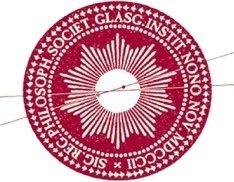Overview The evidence for this society comes George Hull’s The Poets and Poetry of Blackburn (1793-1902) (1902). This Glaswegian literary group was devoted to the study of the poetry and songs of Robert W. Thom (30 December 1816-?). Thom was author Read More …
Document Type: Secondary Source
Anderston Social Club (not the same as the Anderston Club)
Overview Anderston is an area just over a mile to the west of Glasgow’s city centre. (For more information about this area, see Michael Moss’s article, ‘Industrial Revolution: 1770s to 1830s. Neighbourhoods. Anderston‘ on The Glasgow Story website). According to John M’Dowall, Read More …
Clarinda Burns Club (currently unclear if this is Glasgow Clarinda Club)
Overview This club was named after ‘Clarinda’, the name adopted by Agnes McLehose (or MacLehose, M’Lehose, Meklehose), whose affair with Robert Burns (‘Sylvander’) is the subject of ‘Ae fond kiss’ (1791). The Annual Burns Chronicle and Club Directory for the Read More …
Glasgow Addisonian Literary Society
Overview Alexander Smith (1829-1867) was a well-known working-class Scottish poet, and was one of the founding members and Secretary of this society. (For more information on Smith, see, for example, ‘Alexander Smith (1829 – 1867)‘ on the Scottish Poetry Library Read More …
Glasgow and District Burns Club (aka Glasgow and District Burns Club Association, aka Glasgow and District Association of Burns Clubs and Kindred Societies) (currently unclear if this is same as Glasgow And West of Scotland Burns Club Association)
Overview This club was made up of several local and regional Burns clubs: in 1908, one year after its founding, there were 23 clubs, and the group grew to include 40 clubs by 1914. It met at various venues across Read More …
Glasgow Ballad Club
Overview The founder and first President of this club was William Freeland, who served from 1876 to 1903. There were 11 original members. The Glasgow Post Office directory for 1902-1903 gives a good overview of this club and its activities: Read More …
Glasgow Cowal Society, Literary Department
Overview The name for this society refers to Cowal, a peninsula in Argyll and Bute in the Scottish Highlands, thus its members were almost certainly from the Highlands. This group is a type of nineteenth-century county association. In the stricter sense, Read More …
Glasgow Dickens Society
Overview The Glasgow Post Office directory for 1908-1909 provides an overview of this society: ‘The objects and aims of the Society are: — (1) To knit together in a common bond of friendship lovers of that great master of humour Read More …
Glasgow Orkney and Shetland Literary and Scientific Association
Overview The members of this group (and/or their parents) were originally from Orkney and Shetland, and had since settled in Glasgow. This society is a type of nineteenth-century county association. In the stricter sense, county associations were groups whose members (or whose Read More …
Glasgow Young Men’s Christian Association
Overview The Young Men’s Christian Association (YMCA) was formed in London in 1841. (For a history of this association, see ‘History and Heritage’, on the YMCA website.) There is a discrepancy in the records as to the start date of the Glasgow Read More …
Literary and Commercial Society of Glasgow
Overview The Glasgow Literary Society was founded in 1752 and changed its name at the beginning of the nineteenth century to the Literary and Commercial Society of Glasgow. They changed premises as well, moving from the University of Glasgow (at Read More …
Literary and Scientific Association (associated with the Chartist Church, Glasgow)
Overview There is little currently known about this association. The article in the Northern Star mentions that there were three Chartist churches in Glasgow at the time (‘Chartist Intelligence. Glasgow’, Northern Star and Leeds General Advertiser, 31 July 1841, p. Read More …
Rosebery Burns Club (not same as Kilbirnie Rosebery Burns Club)
Overview This was a fairly large Burns club, with 94 members on the roll in 1893, and it nearly doubled its size in 1902, with 180 members reported. The group met from September until April on Tuesdays at 8pm (later Read More …
The Royal Philosophical Society of Glasgow (not the same as Philosophical Society, 1795-1796?)
Overview This group began as the Glasgow Philosophical Society and later became the Philosophical Society of Glasgow. A Royal Charter was granted in 1901. The Royal Philosophical Society of Glasgow’s website offers an excellent summary of the long history of this Read More …
Scottish Society of Literature and Art
Overview The Glasgow Post Office directory for 1887-1888 provides a good summary of this society and its activities. Along with the society’s object — ‘[t]he cultivation of literature, music, elocution, and art generally, by the holding of meetings for the Read More …
Sir Walter Scott Club
Overview The Glasgow Post Office directory for 1896-1897 lists the prestigious office bearers and prominent members of the community who belonged to this club. In addition, it gives the group’s object, which was ‘[…] to promote the study of Sir Walter Read More …
The Thirteen Club (aka The Glasgow Thirteen)
Overview From the start, this club was intended to have a small, exclusive membership limited to 13 members. Discussions were to be on literature and art. The first meeting was held on Friday, 15 January 1891 at Moir’s Restaurant on Read More …
